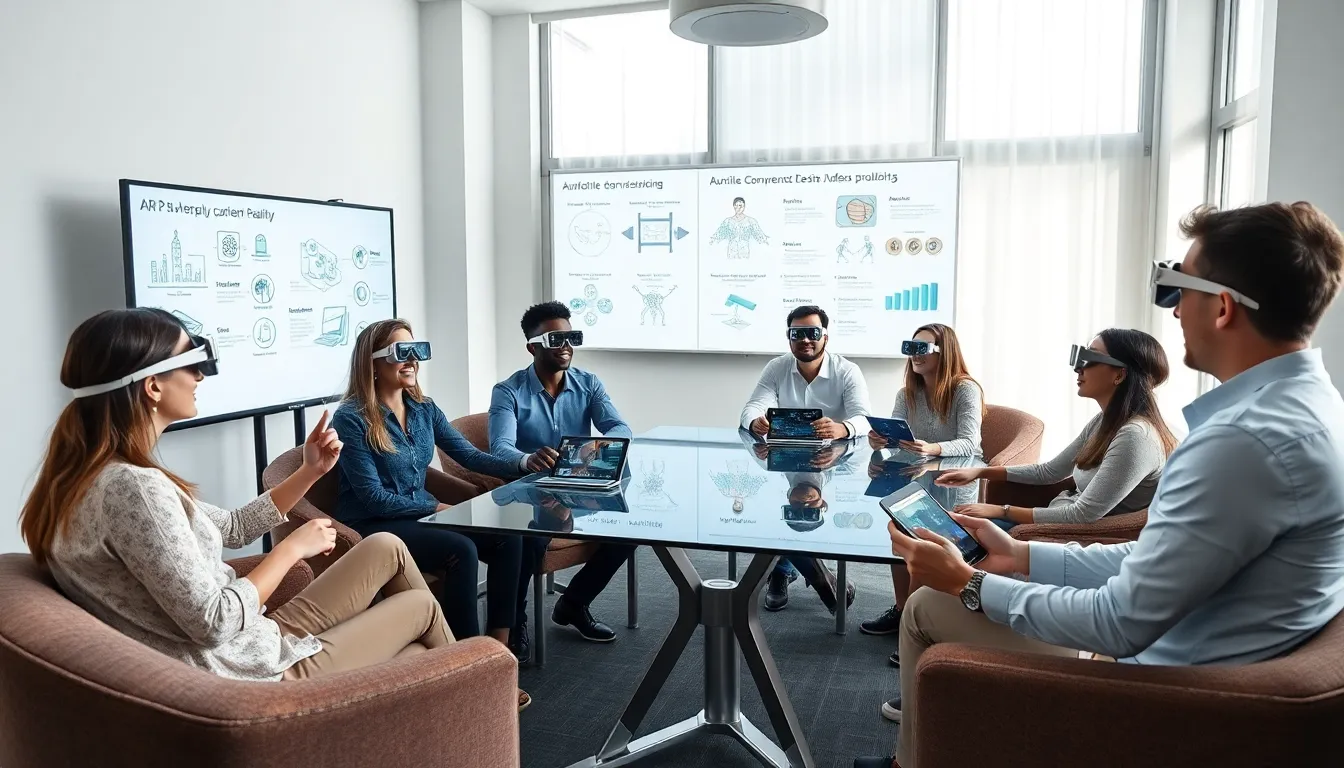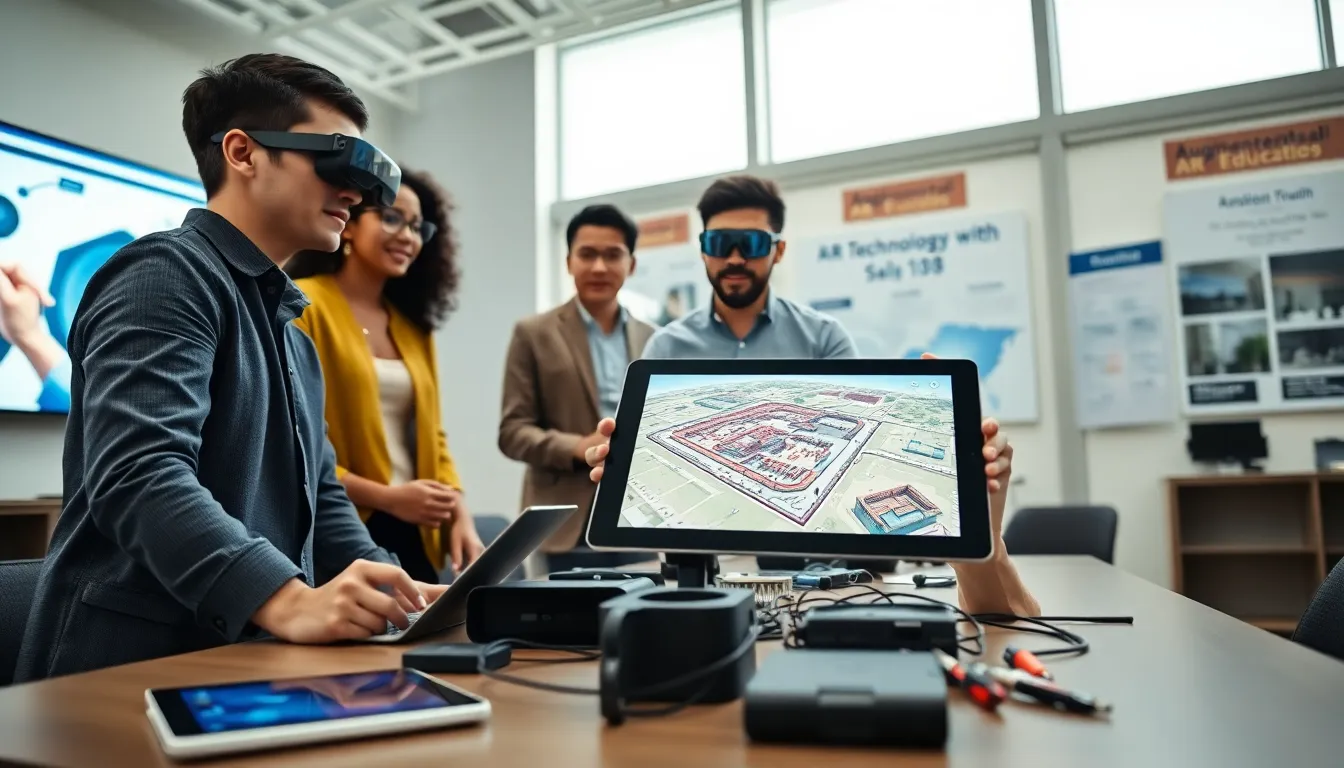Augmented reality (AR) is not just a fancy buzzword anymore: it’s a game-changer in multiple industries. If you’ve ever wanted to jump into a world where the digital and physical realms collide, augmented reality courses might just be your golden ticket. Imagine putting on a headset and suddenly seeing your living room transformed into a medieval battlefield or your kitchen turning into a 3D-modeling studio. Who wouldn’t want skills that can make this reality? In this text, we’ll navigate through the exciting landscape of AR education, what you can gain from it, and how to pick the best course for you, all while keeping it fun and informative.
Table of Contents
ToggleUnderstanding Augmented Reality

Overview of Augmented Reality Technology
Augmented reality merges the real world with computer-generated elements. Unlike virtual reality, which completely immerses an individual in a digital environment, AR enhances existing surroundings by overlaying digital content. Think of it as an upgrade to reality. Through devices like smartphones, tablets, and specialized AR glasses, users can interact with both their environment and virtual objects.
Applications of Augmented Reality in Various Fields
The applications for augmented reality span numerous sectors. In healthcare, for example, AR can aid in surgical procedures by providing real-time data and visuals overlaid on the patient. Retail giants use AR for virtual try-ons, allowing customers to see how clothing or accessories look without stepping foot in a fitting room. Even in education, AR is enhancing learning experiences by turning textbooks into interactive explorations. The possibilities are virtually endless.
Benefits of Learning Augmented Reality Skills
Career Opportunities in Augmented Reality
As industries increasingly adopt augmented reality, the demand for skilled professionals continues to grow. Positions range from AR developers and designers to project managers and UX specialists. Those who possess augmented reality skills are often seen as pioneers, making their expertise highly valuable in today’s tech-savvy job market.
Key Industries Embracing Augmented Reality
Various fields are turning to augmented reality to stay competitive. Gaming companies leverage AR for immersive experiences, while manufacturers use it for training and maintenance. The automotive industry is even employing AR for virtual showrooms, enabling buyers to explore vehicles without visiting physical locations. Clearly, AR skills are an asset in a multitude of environments, making them worthy of pursuit.
Choosing the Right Augmented Reality Course
Factors to Consider When Selecting a Course
When looking for the right augmented reality course, several factors come into play. First, consider the course’s depth, is it suitable for beginners, or does it cater to advanced learners? Look for certifications that hold value in the industry, and ensure the instructors have relevant experience. Also, check for hands-on projects: practical experience often cements what you’ve learned.
Top Platforms Offering Augmented Reality Courses
Several platforms stand out in the realm of AR education. Websites like Coursera and Udacity provide comprehensive courses from reputable institutions. Alternatively, platforms such as LinkedIn Learning and Pluralsight offer shorter, skill-focused modules ideal for professionals on the go. Remember, it’s important to select a platform that matches your learning style.
Course Content and Structure
Essential Topics Covered in Augmented Reality Courses
Courses typically cover foundational concepts in augmented reality, including the history and evolution of AR technology. Participants often investigate into programming languages like C# or Java and learn to use AR development tools such as Unity or ARKit. Understanding the user interface design specific to AR applications can also be crucial. Besides coding, incorporating storytelling elements helps create more engaging AR experiences.
Hands-On Projects and Real-World Applications
The best augmented reality courses blend theory with practical application. Many programs include projects where students can contribute to real-world scenarios, such as developing AR apps for local businesses or participating in hackathons. Engaging in these hands-on activities not only builds confidence but also adds valuable work to portfolios, making graduates more employable.



